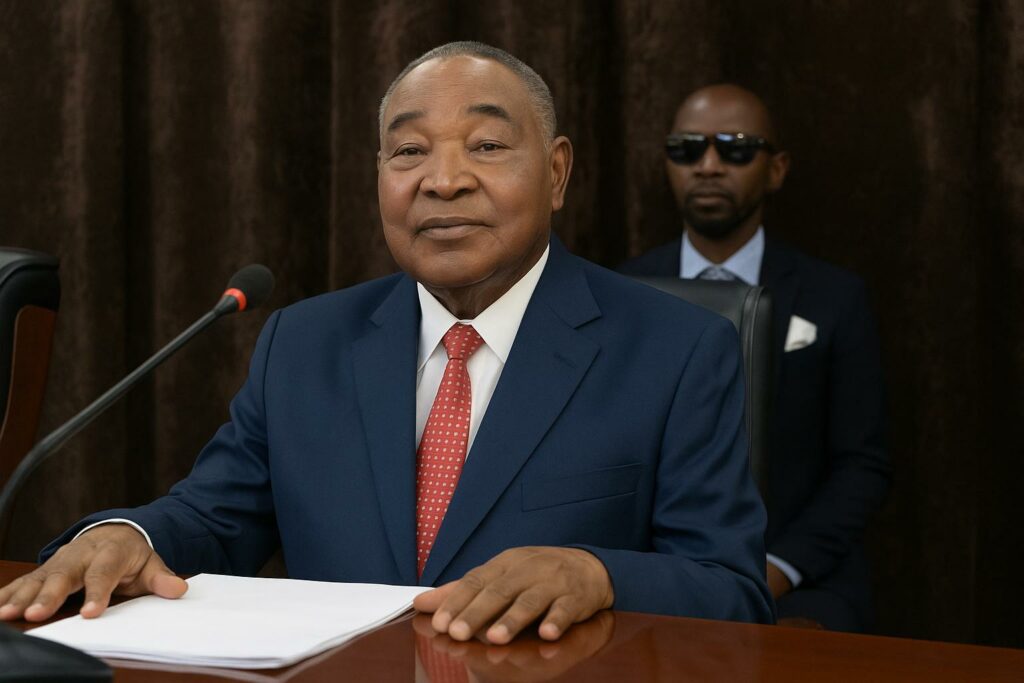High Nomination Fees Under Scrutiny
In a briefing delivered on 9 October in Brazzaville, Dominique Basseyla, Minister and Commissioner of the ad-hoc Committee monitoring the Sibiti 2015 National Dialogue, drew renewed attention to the financial thresholds required to contest elections in the Republic of Congo. At present a presidential hopeful must lodge a deposit of 25 million CFA francs, while candidates to legislative and local bodies face fees of 1.5 million and 500 thousand CFA francs per list respectively. According to the Commissioner, such figures, though designed to deter frivolous bids, are proving prohibitive for “many citizens endowed with constructive ideas yet constrained by limited means”.
The Committee therefore advocates a recalibration of these deposits at the forthcoming political consultations. Basseyla argued that a balanced fee structure, attentive to the nation’s socio-economic realities, would broaden the pool of contenders, invigorate debate and ultimately lend greater legitimacy to elected institutions. Sources close to the Committee indicate that comparative studies with peers in Central Africa, where deposits seldom exceed ten million CFA francs for the presidency, are already informing internal discussions.
Administrative Revision Favoured Over Biometrics
While acknowledging the long-term merits of biometric registration, the ad-hoc Committee commended the government’s decision to privilege an administrative revision of voter lists for the current cycle. Previous assessments had revealed logistical complexity and cost overruns associated with a full biometric census. “Given the magnitude of the undertaking, the expeditious path is to update the rolls administratively, department by department, with the cooperation of citizens,” Basseyla stated, urging massive turnout to the local revision centres.
The Commissioner contends that an accurate wp-signup.php remains the cornerstone of peaceful and incontestable elections. He emphasised the consensus reached with political stakeholders on 1 September to align revision procedures with international good practice. Independent observers consulted by our newsroom share the view that, if transparently executed, administrative updates can produce a roll of comparable integrity to biometric alternatives, provided controls on duplications and ghost entries are rigorous.
Towards a More Independent CNEI
Beyond voter registration, the Committee’s memorandum turns to the institutional architecture of electoral governance. Although the National Independent Electoral Commission (CNEI) has been operational for several cycles, Basseyla believes its autonomy could be consolidated through a dedicated budget line insulated from annual appropriations. Such financial independence, he argued, would reinforce both transparency and operational flexibility.
Draft provisions aimed at that objective feature in the new electoral bill that the government plans to submit to the Council of Ministers on 7 October 2025. Among the innovations under consideration are reinforced disclosure obligations for procurement, clear tenure guarantees for commissioners and a streamlined litigation timetable. Experts in constitutional law interviewed in Brazzaville note that these measures are consistent with African Union recommendations and could reduce post-electoral disputes, a recurrent source of tension in the sub-region.
Reimagining the Political Landscape
Looking further ahead, the Committee is also studying structural reforms that could reshape Congo’s party system. In his address, Basseyla revisited his earlier proposal to introduce a vice-presidency of the Republic and to restructure parties into three broad ideological blocs—republican, social-democratic and centrist. Under such a configuration, the presidential race would feature one candidate per bloc, and legislative as well as local contests would do likewise.
Proponents argue that the scheme could curb political fragmentation, facilitate coalition building and lower campaign expenditures. Skeptics, however, caution that simplifying the field must not come at the expense of pluralism. The Commissioner assured that any constitutional amendments would proceed through inclusive dialogue, underlining the administration’s commitment to “continuous improvement” of democratic practice.
A Pre-Electoral Roadmap for 2025
With 2025 identified as a pivotal pre-electoral year, the ad-hoc Committee insists on the timely finalisation of all legal and institutional instruments. Basseyla offered a measured outlook: “Our country has consistently organised free, regular and transparent elections, yet we must remain vigilant and keep perfecting our mechanisms.”
Analysts note that the convergence of lower candidacy fees, precise voter lists and a robustly independent CNEI could enhance both participation and confidence in forthcoming polls, thereby safeguarding the stability that has characterised Congo-Brazzaville in recent years. The government’s swift endorsement of several Committee recommendations demonstrates, for these observers, a pragmatic approach to reform that balances ambition with fiscal realism.

